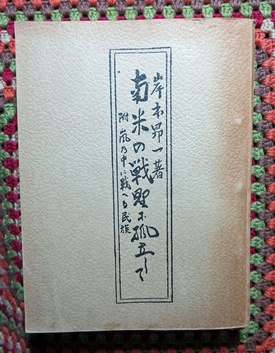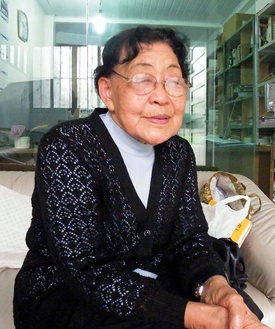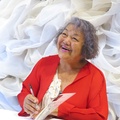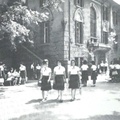At 10 a.m. on March 3, 1948, a detective from the Social and Political Police (DOPS, equivalent to the Special Higher Police in Japan) suddenly showed up at the boarding school Gyosei Gakuen in the Pinheiros district of São Paulo and ordered the school's principal, Koichi Kishimoto (pen name Oka Yo, 1898-1977), who had just published his Japanese book, Isolated in the South American War (hereafter abbreviated as War), to appear before them. He was incarcerated for about a month from the 21st of the same month, was criminally charged as a "threat to the nation," and spent the next 10 years fighting a trial to be deported from the country. However, even when reading through the books "70 Years of Immigration" and "80 Years of Immigration," compiled by leading intellectuals in the Japanese community, there is not a single mention of "Kishimoto Koichi" or "Star of the Wilderness." He was a journalist who was erased from the official history of the Japanese community.
A best-seller that sold 5,500 copies immediately after the end of the war
The first edition of 2,000 copies of Senya was published in September 1947 and sold out within 10 days. A second edition of 5,000 copies was then republished in January 1948, and 3,500 copies were sold in three months. Sympathy for the contents of the book, which describes the experience of persecution of Japanese immigrants during the war, spread, and it became a best-seller in the Korean community, and in March of that year, he was imprisoned.
When I checked the DOPS Kishimoto record (10590) at the São Paulo State Archives (Arquivo pulico do estado de São Paulo), I found a judgment dated May 21, 1957. The charge against Kishimoto was "harming the national interest by publishing a book that attacks Brazil, incites racial conflict, and promotes the isolation of the Japanese," and the Federal Ministry of Public Security had filed a criminal complaint calling for "the revocation of his right to naturalization and the punishment of exile abroad."
A book written by an immigrant, and in a foreign language, in Japanese... What was written in it that touched upon the sensitive points of the state power at the time?
A unique figure who is being reevaluated in Japan after his death
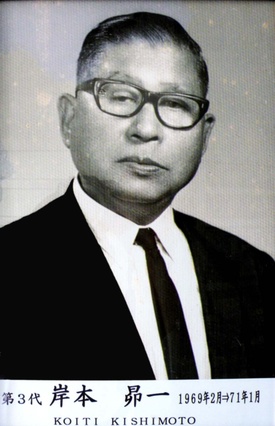
Kishimoto was born in Shibata, Niigata Prefecture in 1898. He traveled to Brazil in 1922 through the Nippon Rikkokai and began teaching Japanese in the Kamizuka colony. He moved to São Paulo and founded a boarding school called Gyosei Gakuen in 1932, and began publishing the school newsletter, Gyosei Gakuen Kaiho (page 18), twice a year in 1936.
At first it was a newsletter for parents, but gradually the content was adapted for the general public, and in February 1940 it developed into a bimonthly youth magazine, "Kouya" (32 pages, printed), which had a readership of 1,200 by issue 18. However, with the outbreak of the European war in 1941, a ban on foreign books was issued, and publication ceased in August of the same year.
After the war, it was republished as a bimonthly magazine called "Kouya no Hoshi" in August 1950. The magazine continued for an astounding 18 years in the postwar period alone, boasting 5,000 subscribers, and continued for 23 years (including the five years before the war) at a time when it was rare for a magazine to last more than three years, making it a representative magazine in the colonia (Japanese community).
He published a total of eight books, including "Isolated in the Battlefields of South America," which was banned by DOPS. Moreover, in 1998, 21 years after his death, Niigata Prefecture published a critical biography of him, "Kishimoto Koichi: Pioneer of the Brazilian Colony" (by Matsuda Tokiji, Niigata Prefecture Association of Overseas Emigrants).
Furthermore, in 2002, his book "Isolated in the Battlefields of South America" was reprinted by Tohosha in Japan as a "hidden masterpiece." There is no one else in Colonia who has written a book that has been reevaluated in his home country 30 years after his death.
Traumatic deportation trial for family
The only public place in Brazil where Kishimoto's photo is still hanging tall is the entrance to the Niigata Prefectural Hall in Sao Paulo. He served as the third president of the association from February 1969 to January 1971.
A relative of Kishimoto, Aono Kachie (84 years old at the time, from Shibata City, Niigata Prefecture) (interviewed on March 19, 2013), said, "He was a big farmer who was called 'Kishimoto-sama' in the local area." When asked about the deportation trial, she recalled, "He didn't talk much about the trial. He didn't talk much about going to the kadeia (detention center) either."
On April 16, 2011, I interviewed Koichi Kishimoto's second son, Isaac (Nisei, then 77), and his wife, Setsuko (Nisei, 72), at their home in the southwest of São Paulo. They explained, "No one in the family wanted to talk about the trial. No one wanted to talk about it since then." The incident had become a serious trauma for the family.
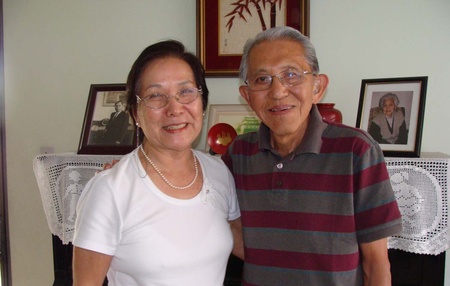
Kishimoto was an advocate of permanent residence and had naturalized at an early stage. Moreover, he had six children with Brazilian nationality, some of whom had served in the military. In order to deport such a person, Kishimoto's naturalization rights must first be revoked, and then he can be deported. The revocation of naturalization rights was the subject of the trial.
As a country that respects the principle of birthright, if a child is born in Brazil, the parents cannot be deported, even if they are foreigners. Ronald Biggs, a famous British man who was a member of the gang in the movie "The Great Train Robbery," had a child with a Brazilian woman, so the Brazilian government continued to refuse the British government's request for his extradition. It is unusual to go so far as to revoke his naturalization rights. It seems that he was considered a very "dangerous person."
© 2015 Masayuki Fukasawa


